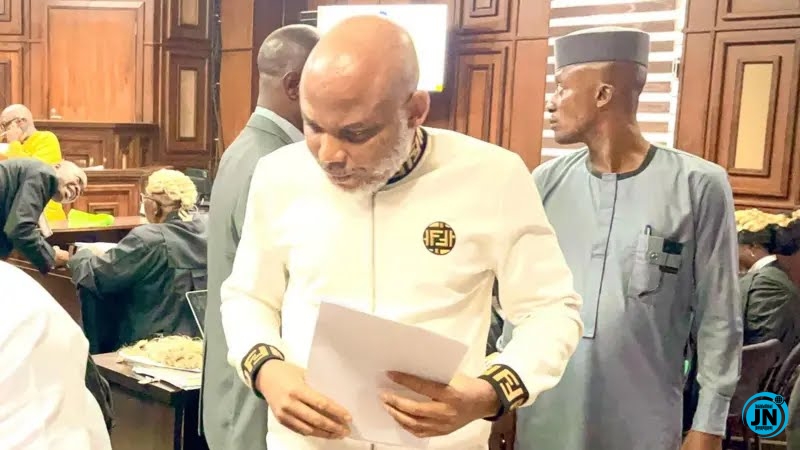
Abuja, Nigeria — In a dramatic conclusion to a long-running trial, the Federal High Court in Abuja has sentenced Nnamdi Kanu, leader of the Indigenous People of Biafra (IPOB), to life imprisonment on seven terrorism-related charges.
Presiding judge James Omotosho convicted Kanu on all counts, including incitement of violence, enforcing “sit-at-home” orders, and disseminating bomb-making instructions via his radio broadcasts. The court ruled that his weekly orders for residents in the southeastern states to stay at home had caused widespread disruption, restricted freedom of movement, and amounted to terrorist activity.
Despite the prosecution’s plea for the death penalty, Judge Omotosho opted for life imprisonment, citing global opposition to capital punishment and emphasizing a need for both justice and mercy. Reflecting on the severity of the case, the judge warned that Kanu’s violent rhetoric and actions had caused significant harm to both civilians and security personnel.
Kanu declined to defend himself during the trial, insisting the court lacked jurisdiction over him, and was eventually ejected from the courtroom for disruptive behavior. The judge ordered that Kanu be kept in a secure facility, citing concerns over his “tendency for violence” and the risk posed by his communications.
In addition to the life sentence, the court imposed 20-year and 5-year concurrent sentences on two other counts. Omotosho also ordered the forfeiture of Kanu’s broadcasting equipment, including devices used to run Radio Biafra, to the Nigerian government.
During sentencing submissions, a member of the House of Representatives representing Kanu’s home region appealed for leniency, urging the court to consider the wider political and social context. Nonetheless, the court maintained that his actions crossed the line into terrorism.
The case marks a significant turning point in Nigeria’s efforts to quell secessionist agitation in the southeast. Kanu, a British-Nigerian dual citizen, has long sparked controversy for his calls to revive the defunct Republic of Biafra — a movement that reignited decades-old regional tensions.